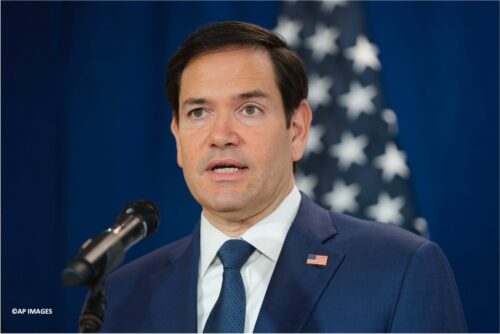
Euronews: Azerbaijan is busy greening its image, but the climate conference is not enough to achieve sustainable peace with Armenia
Azerbaijan, a petrostate on the southeastern edge of Europe, has been propelled into the limelight as the location of COP29, Euronews writes.
This follows an agreement with its arch-rival Armenia to begin a peace process after decades of war. Armenia and Azerbaijan have fought a decades-long bloody war for the region of Nagorno-Karabakh, which led to many thousands of casualties and displacements on both sides. Lachin became the scene of an international dispute between Azerbaijan and Armenia after the 2020 Azeri offensive. In 2023, international organizations including the U.N. condemned what they described as the Azeri blockade.
Three months after the ceasefire in 2020, Aliyev was there opening a hydropower plant. This is a very strong political message to show strength and victory. Azerbaijan is busy greening its image ahead of the summit in November.
Developments in Nagorno-Karabakh serve both to push the green agenda forward and to legitimize the region’s status in the international arena. But developing hydropower without proper assessments can be damaging to mountain ecosystems.
At the same time, after Russia’s full-scale invasion of Ukraine, the EU signed a Memorandum of Understanding (MoU) with Azerbaijan in July 2022 to strengthen energy ties. Imports of Azeri fossil gas have been rising steadily. Currently, Azerbaijan supplies 4.3 per cent of the EU’s energy imports. The EU refers to Azeri gas as “stable and reliable” and expects the imports to double by 2027. The MoU also mentions ambitions to boost Azeri renewable energy capacity so that it can be transmitted to the EU. Meanwhile, the European Parliament has called for energy sanctions on Azerbaijan and for suspending the MoU.
In a resolution from February 2024, the Parliament condemned what it called “the policies of aggression, including the pre-planned military attack of Azerbaijan against Nagorno-Karabakh” and “organized starvation and isolation of the Armenians living in Nagorno-Karabakh through the blockade of the Lachin corridor.”
Several political scientists in Azerbaijan expressed the hope that the climate conference will bring a breakthrough in bilateral relations. While the prospect of peace is closer than it’s been in decades, many unresolved issues continue to threaten the fragile stability. The new border drawing procedure between the two countries is another major source of contention. In May 2024, tens of thousands of people protested in Yerevan over Pashinyan’s decision to hand over four border villages to Azerbaijan. Armenia states that Azerbaijan is occupying around 150 square kilometers of its sovereign territory.
It may take more than a climate conference to get the two nations to secure a lasting peace.


